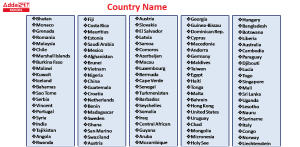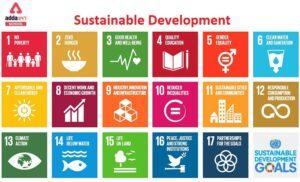In India, a state of emergency is a period of rule that can be declared by the President of India in a situation of crisis. The President can overrule the various articles of the Constitution, which guarantee Fundamental Rights to the people of India, with the recommendation of the cabinet of ministers. Part XVIII of the Indian Constitution, from Articles 352 to 360, contains emergency measures. These laws enable the Central Government to efficiently respond to exceptional circumstances. The rationale for incorporation is to protect the country’s security, sovereignty, integrity, and unity as well as the Constitution and the democratic political system. In this article, we have provided details about emergency India and its impact. Know Consequences of Emergency of 1975 in details in this post.
Emergency in India
In India, an emergency refers to a situation in which the normal functioning of the country is disrupted, and the government exercises extraordinary powers to maintain law and order or deal with a crisis. The Indian Constitution provides for three types of emergencies:
- National Emergency: This type of emergency is declared when there is a threat to the security of India, whether it is from external aggression or armed rebellion within the country. It is proclaimed by the President of India and can be imposed on the entire country or a specific region. During a national emergency, the central government gains additional powers to govern and can suspend some fundamental rights of citizens.
- State Emergency: A state emergency, also known as President’s Rule, is imposed on a particular state when the constitutional machinery within the state fails to function properly. This can occur due to factors such as political instability, failure of the state government, or internal disturbances. The Governor of the state, on behalf of the President, takes control of the state’s administration, and the state legislature may be dissolved or suspended.
- Financial Emergency: This emergency can be declared when the financial stability or credit of India is threatened. It empowers the President to direct the states on financial matters and take necessary steps to ensure the country’s fiscal stability.
It’s worth noting that the declaration of an emergency in India is a serious step, and it involves the suspension of certain democratic rights and the centralization of power in the hands of the government. The Constitution imposes certain checks and balances to prevent misuse of emergency powers and ensures that emergency provisions are used sparingly and only in exceptional circumstances.
Types of Emergency
There are three types of Emergency provisions in India:
- Constitutional Emergency: Article 355 requires the centre to guarantee that the governance of each state is carried out in line with the provisions of the constitution. In the event that a state’s constitutional machinery fails, the central assumes control of its administration under Article 356. This is sometimes referred to as the ‘President’s Rule.’
- Financial Emergency: Article 360 authorizes the president to declare a Financial Emergency if he believes that a situation has emerged that threatens India’s financial stability or credit, or any portion of its territory.
- National Emergency: Article 352 empowers the president to proclaim a national emergency if the security of India or a portion of it is jeopardized by war, external attack, or armed insurrection. Even before the onset of war, armed revolt, or external attack, the President may proclaim a national emergency. When a national emergency is proclaimed due to ‘war’ or ‘foreign aggression,’ it is referred to as an ‘External Emergency.’ When it is proclaimed on the grounds of ‘armed insurrection,’ however, it is termed an ‘Internal Emergency.’
Emergency in India Imposed on 25th June 1975
In March-April 1974, the Bihar Chatra Sangharsh Samiti, a student protest, obtained the support of Gandhian socialist Jayaprakash Narayan against the Bihar administration. Jayaprakash Narayan called for a “complete revolution” in Patna in April 1974, urging students, peasants, and labour unions to reform Indian society non violently.
Raj Narain, who was defeated by Indira Gandhi in the 1971 parliamentary election, filed petitions in the Allahabad High Court accusing her of electoral fraud and using state machinery for her political interest. Shanti Bhushan argued the lawsuit on Narain’s behalf. Indira Gandhi was also cross-examined before the High Court.
On 12 June 1975, Justice Jagmohanlal Sinha of the Allahabad High Court convicted the prime minister of misusing government machinery for her election campaign. The court ruled her election null and void and removed her from her Lok Sabha seat. The court also barred her from running in any election for another six years. Serious allegations like buying voters and electoral fraud were dismissed, and the former Prime Minister was held accountable for misusing government machinery.
Indira Gandhi appealed the ruling of the High Court to the Supreme Court. On 24th June 1975, Justice V. R. Krishna Iyer affirmed the High Court decision and ordered that all advantages Gandhi earned as an MP be revoked, as well as her right to vote. She was, however, permitted to continue as Prime Minister until the outcome of her appeal.
Later, on the night of 25th June 1975, just minutes before midnight, President Fakhruddin Ali Ahmed announced a state of internal emergency on the advice of the prime minister. Indira Gandhi awarded herself exceptional powers by invoking Article 352 of the Indian Constitution. That’s how in odd circumstances the emergency has been imposed on India for the first time to save the political interest of the prime minister.
Indira Gandhi declared a new election and freed all political prisoners on 18th January 1977, while the Emergency formally ended on March 23, 1977. Indira Gandhi and Sanjay Gandhi both lost their seats in the March 1977 Lok Sabha elections. Congress was reduced to 153 seats, 92 of which came from four southern states. The Janata Party had a strong majority with 298 seats and 47 seats from its allies (out of a total of 542). Morarji Desai became India’s first non-Congress Prime Minister.
Consequences of Emergency of 1975 for Class 12
The emergency declared in India in 1975 was one of the most controversial and significant events in the country’s political history. Here are some of the key consequences of emergency of 1975:
- Suspension of Civil Liberties: One of the most notable consequences of the emergency was the suspension of fundamental rights guaranteed by the Indian Constitution. The government imposed censorship on the press, curtailed freedom of speech and expression, and detained thousands of political activists and opposition leaders without trial.
- Political Repression: The emergency was characterized by widespread political repression. Opposition parties and activists were targeted, and dissent was suppressed. Many opposition leaders, including Jayaprakash Narayan and Morarji Desai, were arrested, and their parties were banned. The government also initiated a mass sterilization campaign, which was implemented with coercive measures.
- Centralization of Power: During the emergency, the power of the central government was significantly enhanced. The Prime Minister at the time, Indira Gandhi, and her government wielded enormous authority, and decision-making was centralized. The states’ autonomy was undermined, and the government could dismiss state governments and assume direct control through President’s Rule.
- Economic Policies: The emergency period saw the implementation of various economic policies. The government pursued a more interventionist approach, with stricter regulations on industries and trade. It also introduced measures to control prices and curb inflation. However, some of these policies faced criticism for their adverse impact on economic growth and individual freedoms.
- Political Backlash and Elections: The emergency triggered a strong backlash from various sections of society. Civil society organizations, student groups, and political activists mobilized against the government. The opposition parties, who were initially suppressed, united under the banner of the Janata Party and fought the 1977 general elections. The elections resulted in a decisive defeat for Indira Gandhi’s Congress party, and the Janata Party formed the government at the center.
- Strengthening of Democracy: The emergency served as a stark reminder of the importance of democratic values and civil liberties in India. It led to a renewed emphasis on the protection of fundamental rights and the separation of powers. The judiciary played a crucial role during this period, with landmark judgments upholding the primacy of individual rights. The emergency is often considered a turning point in India’s democratic history, reinforcing the significance of checks and balances and the importance of safeguarding democratic institutions.
Overall, the consequences of the emergency of 1975 had a profound impact on Indian politics, civil liberties, and democratic governance. It remains a contentious period in India’s history, serving as a reminder of the importance of upholding democratic principles and protecting individual freedoms.
Effects of Emergency 1975
The Emergency of 1975 in India, declared by Prime Minister Indira Gandhi from June 25, 1975, to March 21, 1977, had far-reaching effects on the political, social, and economic landscape of the country. Here are some key effects:
1. Political Impact:
Suspension of Civil Liberties: Fundamental rights, including the right to free speech and assembly, were suspended. Censorship of the press was enforced, and opposition leaders were arrested, creating a climate of fear.
Abuse of Executive Power: The emergency gave the government extraordinary powers, allowing Indira Gandhi and her cabinet to bypass constitutional processes. This period saw the centralization of power and increased dominance of the executive over the judiciary and legislature.
Crackdown on Opposition: Many political opponents of Indira Gandhi, including leaders from the Janata Party, were arrested. This stifled dissent and created a one-party dominance for the Congress.
2. Social and Human Rights Violations:
Mass Arrests: Over 100,000 people were jailed under preventive detention laws. These included political opponents, activists, and students. The suspension of habeas corpus meant that people could be detained without trial.
Forced Sterilization Campaigns: One of the most controversial measures was the forced sterilization program, initiated under Sanjay Gandhi’s leadership. The program was aimed at controlling population growth but led to widespread abuses and human rights violations.
Censorship and Media Control: Newspapers were heavily censored, and dissenting voices in the media were silenced. Many journalists were imprisoned, and publications critical of the government were shut down.
3. Economic Changes:
Economic Policy Shifts: During the Emergency, economic measures included a 20-point program aimed at reducing poverty and increasing productivity. However, these programs were often implemented with coercion and high-handedness.
Industrial and Labor Control: Strikes and labor unrest were curtailed as trade unions were suppressed. The government justified these moves as a means to improve productivity and stability, but they reduced the bargaining power of workers.
4. Judicial and Institutional Effects:
Undermining the Judiciary: The independence of the judiciary was challenged. Judges perceived as unsupportive of the government were transferred or sidelined. The Supreme Court’s judgment in the Habeas Corpus case (ADM Jabalpur vs Shivkant Shukla) endorsed the suspension of fundamental rights, further eroding judicial independence.
Electoral Impact: The 1977 elections that followed the Emergency saw a massive defeat for Indira Gandhi and the Congress Party, resulting in the first non-Congress government in India. The Janata Party, a coalition of opposition forces, won a landslide victory.
5. Long-Term Effects:
Constitutional Safeguards: After the Emergency, several amendments were made to the Indian Constitution to prevent the recurrence of such an event. For instance, the 44th Amendment Act (1978) made it more difficult for future governments to declare an emergency.
Public Distrust: The Emergency fostered a lasting distrust of political authority, particularly of Indira Gandhi’s leadership. It highlighted the fragility of democratic institutions when faced with authoritarianism.
Impact on Future Governance: The Emergency period is often referenced in political discourse as a cautionary tale against the abuse of power, and it has shaped India’s democratic processes ever since.
Overall, the Emergency of 1975-77 remains a defining and controversial moment in Indian history, remembered for its authoritarian overreach and the consequent backlash that reaffirmed the importance of democratic principles.
Impact of Emergency in India
The Fakhruddin Ali Ahmed announced the National Emergency. Here we have given the impact of the National Emergency in India:
- No media outlet was permitted to disseminate news without censoring.
- All of these incidents resulted in a breach of certain fundamental rights as well as a case of pure human rights violation.
- In several parts of India, armed personnel were formed to prevent individuals from establishing organizations and discussing non-personal topics.
- Looking at the issues of people’s human rights during times of emergency, it must be said that it was one of the most arbitrary powers exerted by the Constitution as well as the Government towards its people.
- The Constitution, a holy charter of fundamental liberties, has been undermined in the most merciless way conceivable.
- One of the primary responsibilities of the police and military was to prevent individuals from establishing groupings and to arrest those who seemed or acted suspiciously.
आपातकाल के परिणाम- Aapatkal ke Parinaam
भारत में 1975 में घोषित आपातकाल देश के राजनीतिक इतिहास की सबसे विवादास्पद और महत्वपूर्ण घटनाओं में से एक थी। आपातकाल के कुछ प्रमुख परिणाम इस प्रकार हैं:
नागरिक स्वतंत्रता का निलंबन: आपातकाल के सबसे उल्लेखनीय परिणामों में से एक भारतीय संविधान द्वारा गारंटीकृत मौलिक अधिकारों का निलंबन था। सरकार ने प्रेस पर सेंसरशिप लगा दी, भाषण और अभिव्यक्ति की स्वतंत्रता को कम कर दिया और हजारों राजनीतिक कार्यकर्ताओं और विपक्षी नेताओं को बिना मुकदमे के हिरासत में ले लिया।
राजनीतिक दमन: आपातकाल की विशेषता व्यापक राजनीतिक दमन थी। विपक्षी दलों और कार्यकर्ताओं को निशाना बनाया गया और असहमति को दबा दिया गया। जयप्रकाश नारायण और मोरारजी देसाई सहित कई विपक्षी नेताओं को गिरफ्तार कर लिया गया और उनकी पार्टियों पर प्रतिबंध लगा दिया गया। सरकार ने बड़े पैमाने पर नसबंदी अभियान भी शुरू किया, जिसे कठोर उपायों के साथ लागू किया गया।
सत्ता का केंद्रीकरण: आपातकाल के दौरान, केंद्र सरकार की शक्ति में काफी वृद्धि हुई थी। उस समय प्रधान मंत्री, इंदिरा गांधी और उनकी सरकार के पास अत्यधिक अधिकार थे, और निर्णय लेने की प्रक्रिया केंद्रीकृत थी। राज्यों की स्वायत्तता को कमज़ोर कर दिया गया, और सरकार राज्य सरकारों को बर्खास्त कर सकती थी और राष्ट्रपति शासन के माध्यम से सीधे नियंत्रण ग्रहण कर सकती थी।
आर्थिक नीतियां: आपातकालीन अवधि में विभिन्न आर्थिक नीतियों का कार्यान्वयन देखा गया। सरकार ने उद्योगों और व्यापार पर सख्त नियमों के साथ अधिक हस्तक्षेपवादी दृष्टिकोण अपनाया। इसने कीमतों को नियंत्रित करने और मुद्रास्फीति पर अंकुश लगाने के उपाय भी पेश किए। हालाँकि, इनमें से कुछ नीतियों को आर्थिक विकास और व्यक्तिगत स्वतंत्रता पर प्रतिकूल प्रभाव के लिए आलोचना का सामना करना पड़ा।
राजनीतिक प्रतिक्रिया और चुनाव: आपातकाल के कारण समाज के विभिन्न वर्गों में तीव्र प्रतिक्रिया हुई। नागरिक समाज संगठन, छात्र समूह और राजनीतिक कार्यकर्ता सरकार के खिलाफ लामबंद हो गए। विपक्षी दल, जो शुरू में दबे हुए थे, जनता पार्टी के बैनर तले एकजुट हुए और 1977 का आम चुनाव लड़ा। चुनावों में इंदिरा गांधी की कांग्रेस पार्टी की निर्णायक हार हुई और जनता पार्टी ने केंद्र में सरकार बनाई।
लोकतंत्र को मजबूत बनाना: आपातकाल ने भारत में लोकतांत्रिक मूल्यों और नागरिक स्वतंत्रता के महत्व की स्पष्ट याद दिलाई। इससे मौलिक अधिकारों की सुरक्षा और शक्तियों के पृथक्करण पर नए सिरे से जोर दिया गया। इस अवधि के दौरान न्यायपालिका ने महत्वपूर्ण भूमिका निभाई, जिसमें ऐतिहासिक निर्णयों ने व्यक्तिगत अधिकारों की प्रधानता को बरकरार रखा। आपातकाल को अक्सर भारत के लोकतांत्रिक इतिहास में एक महत्वपूर्ण मोड़ माना जाता है, जो नियंत्रण और संतुलन के महत्व और लोकतांत्रिक संस्थानों की सुरक्षा के महत्व को मजबूत करता है।
कुल मिलाकर, 1975 के आपातकाल के परिणामों का भारतीय राजनीति, नागरिक स्वतंत्रता और लोकतांत्रिक शासन पर गहरा प्रभाव पड़ा। यह भारत के इतिहास में एक विवादास्पद अवधि बनी हुई है, जो लोकतांत्रिक सिद्धांतों को बनाए रखने और व्यक्तिगत स्वतंत्रता की रक्षा के महत्व की याद दिलाती है।
1975 के आपातकाल के परिणाम
फखरुद्दीन अली अहमद ने 25 जून 2022 को राष्ट्रीय आपातकाल की घोषणा की। यहां हमने भारत में राष्ट्रीय आपातकाल का प्रभाव दिया है:
किसी भी मीडिया आउटलेट को बिना सेंसर किए समाचार प्रसारित करने की अनुमति नहीं थी।
इन सभी घटनाओं के परिणामस्वरूप कुछ मौलिक अधिकारों के उल्लंघन के साथ-साथ शुद्ध मानव अधिकारों के उल्लंघन का मामला भी सामने आया।
भारत के कई हिस्सों में व्यक्तियों को संगठन स्थापित करने और गैर-व्यक्तिगत विषयों पर चर्चा करने से रोकने के लिए सशस्त्र कर्मियों का गठन किया गया था।
आपातकाल के दौरान लोगों के मानवाधिकारों के मुद्दों को देखते हुए, यह कहा जाना चाहिए कि यह संविधान के साथ-साथ सरकार द्वारा अपने लोगों के प्रति लागू की गई सबसे मनमानी शक्तियों में से एक थी।
संविधान, मौलिक स्वतंत्रता का एक पवित्र चार्टर, को सबसे निर्दयी तरीके से कमजोर कर दिया गया है।
पुलिस और सेना की प्राथमिक जिम्मेदारियों में से एक व्यक्तियों को समूह स्थापित करने से रोकना और संदिग्ध दिखने वाले या कार्य करने वालों को गिरफ्तार करना था।
Related Post:









 Country Name in Alphabetical Order A to ...
Country Name in Alphabetical Order A to ...
 Eastern Ghats in India: Check Map, State...
Eastern Ghats in India: Check Map, State...
 Sustainable Development Project Class 10...
Sustainable Development Project Class 10...









